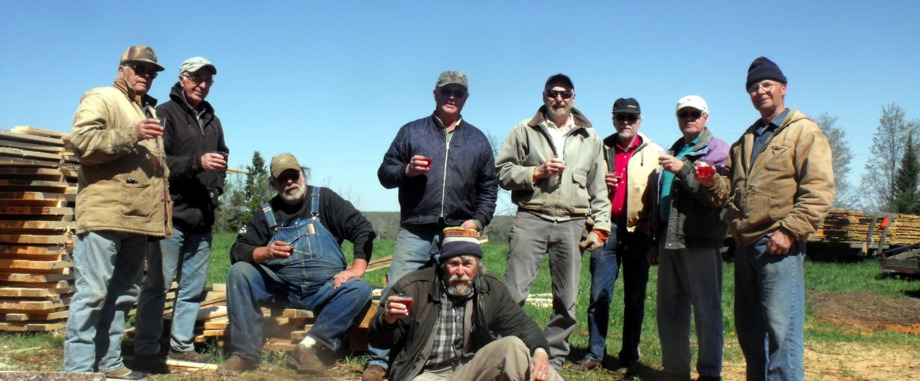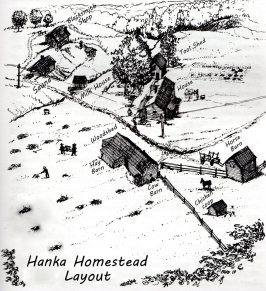
Our Mission
To preserve the area's Finnish immigrants self-reliant pioneer culture and homesteading heritage for new understanding and appreciation.
The Hanka Homestead Finnish Museum is located on its original site in Askel, Michigan and was homesteaded in 1896 by the Finnish immigrant family headed by Herman Hanka. The farm is a eight-building, 40 acre outdoor/opendoor museum that tells the story of how immigrant families, using their skills, knowledge, and background, were able to survive and thrive in the wilderness of the Upper Peninsula of Michigan despite setbacks and minimal resources. In a world where most people are far removed from their historical foundations, it provides a window into what people had to do to make a life for them, and enriches our understanding of the lives of many of our forebears.
The Homestead relates the story of how events at a national level (the Homestead Act of 1862) affected the lives and opportunities available for ordinary people of many nationalities, in this instance the Finnish immigrant and the immigrant family of Herman Hanka. The Hanka story also tells about the connection between the copper mines, the miners and the conditions in the mines, and what happened to those miners who were injured on the job.
The Hanka Homestead was restored beginning in the early 1980's by volunteers under the leadership of Superior Restorations, Alan Pape, President; all of whom had the insight to realize that this “diamond in the rough” would be invaluable for informing future generations of life and living conditions in the era of the 1920’s.
The museum opened to the public in 1985 and is a cooperating Heritage Site of the Keweenaw National Historical Park. In addition, it was listed on the National Register of Historic Places in 1983. This Homestead is one of the few historical sites in the state that has been restored on the original location with many of its original artifacts.
The museum is owned and operated by the all-volunteer Hanka Homestead Finnish Museum Association.


